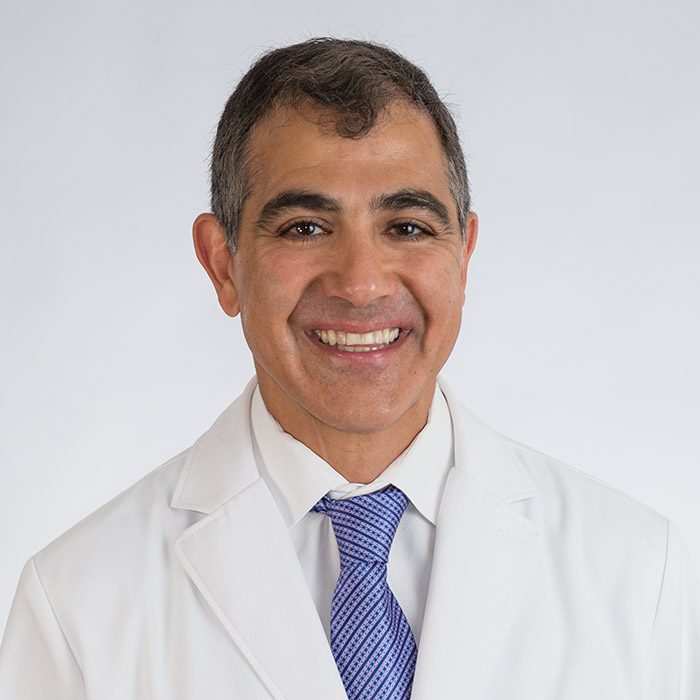About the Fellowship
The Interventional Cardiology Fellowship (ICF) is one of The Texas Heart Institute’s subspecialty fellowships, designed to be a natural extension of the Cardiovascular Disease Fellowship for those with a particular interest in interventional methods. By structuring our ICF program in this way, we are able to support the long-term development of our interventional fellows, ensuring they have the skills and experience needed to become procedural specialists upon graduation.
Although the ICF program is technically a one-year training program which begins following the completion of THI’s three-year Cardiovascular Disease Fellowship, training in interventional cardiology techniques and patient care begins before our fellows chose the interventional cardiology specialty. During their first three years, fellows will participate in the full course of an interventional cardiology patient’s care from admission, evaluation, catheterization, intervention, post-procedural management and, if necessary, post-operative management.
Once they begin the ICF program (their fourth year), fellows focus on further developing their independence and procedural skills. Upon completion of the program, graduates are procedural interventional cardiology specialists with the expertise needed to handle even the most complex of interventional cases.
Our Team
Our Interventional Cardiology teaching staff are some of the most experienced, successful interventionalists in the field, managing a high volume of invasive and interventional cardiology cases each year. The Program’s Director is George Younis, MD. The Associate Program Director is Ajith P. Nair, MD, FACC, FAHA.
Curriculum
The Interventional Cardiology Fellowship (ICF) curriculum reflects the unique, full-range of services and capabilities offered at the Baylor St. Luke’s Medical Center and Texas Heart Institute. The curriculum encompasses coronary intervention and associated diagnostics like IVUS and FFR; structural heart disease diagnosis and interventions like TAVR and ASD/PFO/VSD closure; peripheral and cerebrovascular interventions; endovascular therapies; advanced heart failure management, including life support technologies and procedures; and experimental interventional medicine from LVADs to stem cell therapies. A 20-point mission statement for the ICF program forms the underlying template for the learning objectives of training and thus also for the practical, didactic and scholarly curriculum expressed in the procedural training, lecture series and conferences.
Because we structure the interventional cardiology experience in the three-year Cardiovascular Disease Fellowship program within the clinical rotations (rather than separated “cath” rotations), the ICF fellows arrive in our program with direct procedure experience spanning three years and including hundreds of interventional cases as 1st, 2nd or 3rd operators. Their experience is not only in the procedures, but in the full pre- and post-procedure management of the patient in his/her particular clinical context. Thus, our fellows are deeply experienced and fully prepared to develop their independence and procedural skill in the ICF program which acts as their fourth year.
For this reason, the curriculum gives emphasis to issues of the “who, when and why” of interventional procedures, rather than just “how and with what.” Since the ICF fellows have often witnessed first-hand the difficult nature of deciding to cath or PCI patients, and the sometimes unhappy result of complications, they respect the risks and sometimes limited clinical effectiveness of the enterprise and are very receptive to learning how to refine their judgment and preparedness.
While the ICF fellows have seen much and worked with many attendings with somewhat differing technical approaches, the early portion of the ICF curriculum invests time in teaching a principal method – called the 2-hand 3-station method – for interventional cardiology technique. This method embodies a disciplined, reproducible approach to the use of the hands and the basic catheter and wire tools, with an emphasis on control, stability and safety. Lectures address the general mechanics of catheter tools, and checklist rules for their movement within the body. Lectures on guiding catheters, for example, include concepts such as interacting degrees of freedom in rotation and system energy states. In the first few weeks, the fellows explore these methodological issues and learn technique under direction by manipulating catheter tools in a plastic model of the heart and circulation. This enhances their early experience as they work with patients. Early on, controlling personal risk is addressed, citing proper biomechanics for working at the cath table, limiting personal radiation exposure and dealing with stress.
The didactic lecture series continues to cover all manner of specific technical tools and methods, but also grounds this information with thorough teaching in basics of safety, risk management, clinical effectiveness, research and statistical methods, adjunctive pharmacology, complications and their management, ethics, and medical economics. For example, lectures address artifacts of radiologic imaging, limiting radiation and blood exposure, platelet and thrombosis physiology, complications of PCI, and comparative effectiveness of CABG and PCI. Finally, the latter part of the lecture curriculum provides review sessions to prepare for the board exam in Interventional Cardiology.
In addition to the weekly didactic lectures, all elements of the curriculum are also addressed in weekly case review conferences, interventional morbidity and mortality conferences, research conferences, and monthly journal club meetings.

Application Process
Interested applicants should provide:
- A completed application
- Small photo
- Curriculum vitae
- Personal statement
- Three letters of reference (one from the current program director)
Interviews are by invitation only and are conducted during prearranged dates.
Contact Us
For any questions, please contact the program director Dr. George Younis through his Program Coordinator Blair Dillon blair.dillon@commonspirit.org.

.svg)


